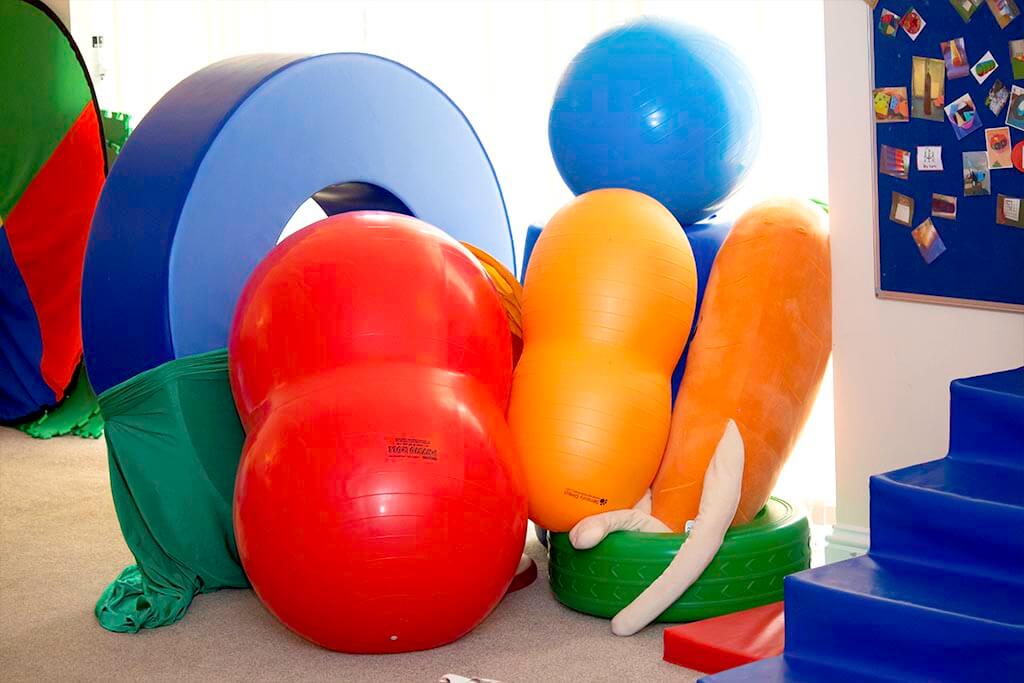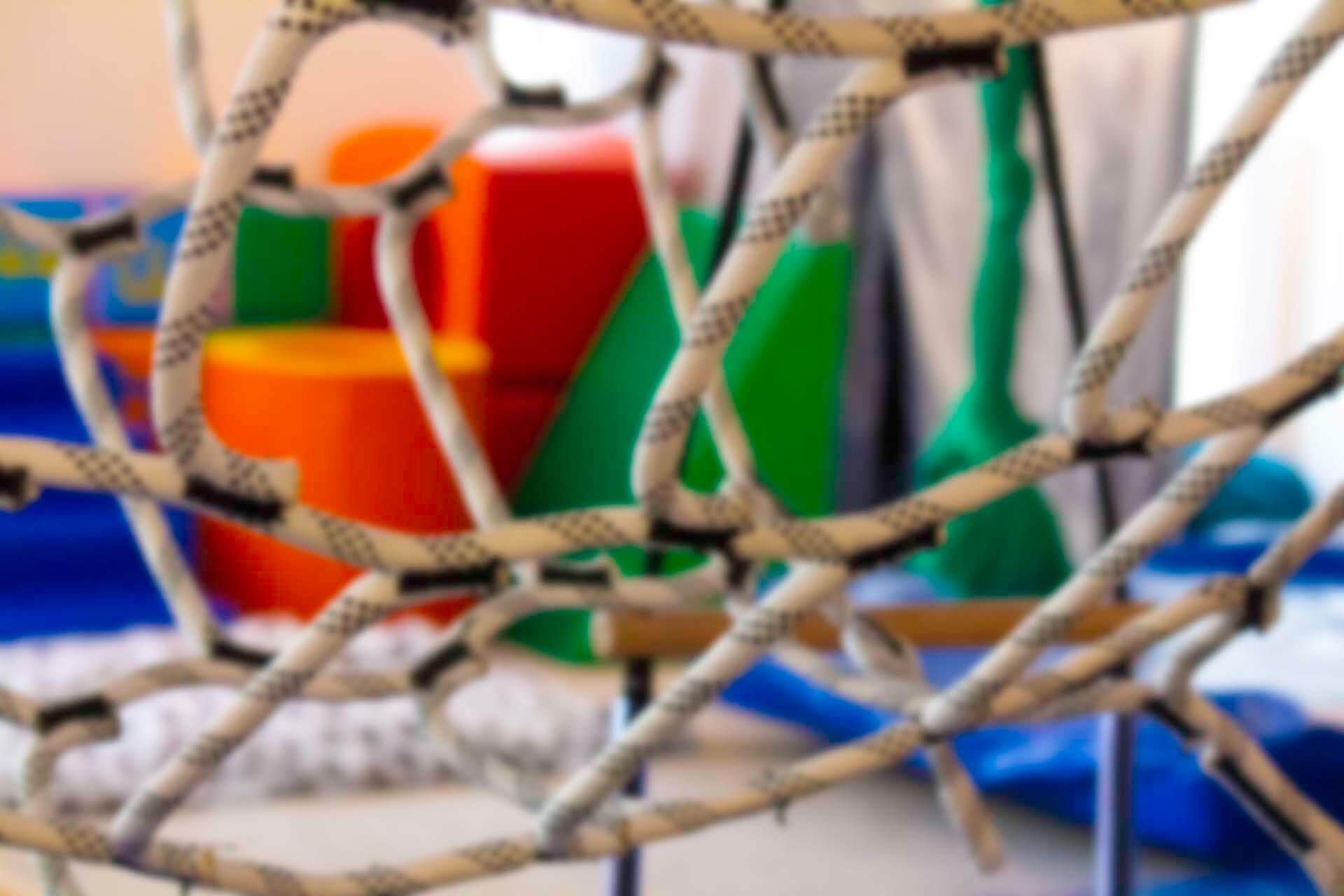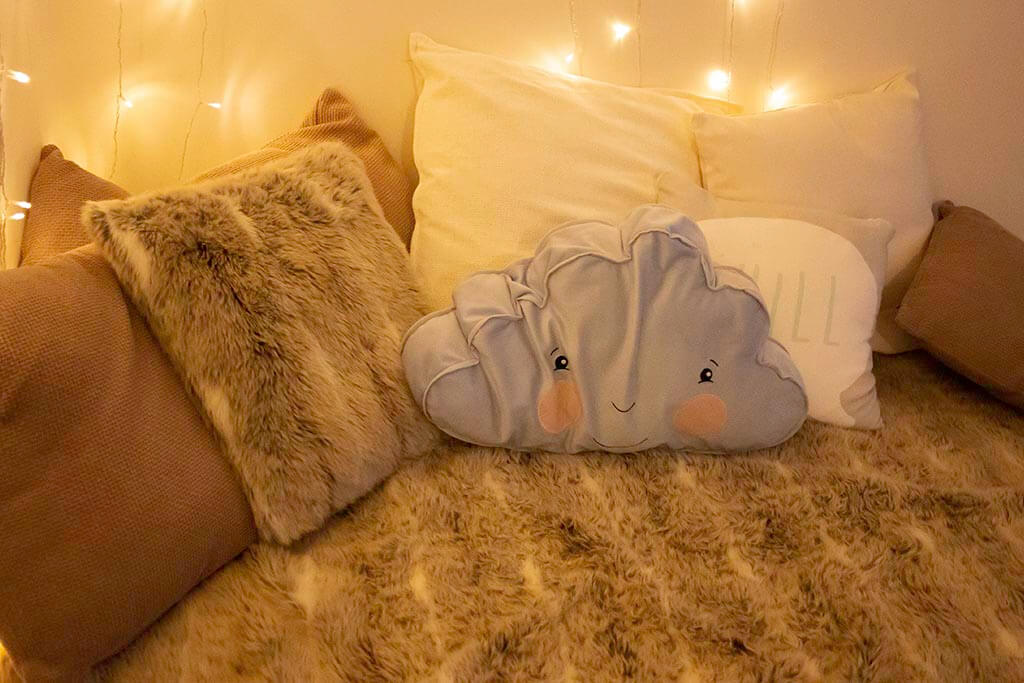Sensory Integration Therapy
Sensory Integration Therapy (SI) approach works on “integrating” all sensory information to allow the child to respond appropriately in their environment.

Ball
Pit

Treatment
Equipment

Sensory Integration
Therapy

Sensory
Space
Sensi provides specialist sensory integration Occupational Therapy undertaken by specialist therapists. Our approachable therapists provide comprehensive assessments and treatment to enhance the child’s participation in everyday life activities. Sensory processing difficulties or sensory processing disorder (SPD) as it is commonly known, is used to describe a neurological impairment impacting on how we integrate and make sense of sensory information. Whilst SPD can exist in isolation, it is commonly seen in combination with others diagnosis.
Sensory processing difficulties or sensory processing disorder (SPD) as it is commonly known, is used to describe a neurological impairment impacting on how we integrate and make sense of sensory information. Whilst SPD can exist in isolation, it is commonly seen in combination with other diagnosis.
Who will benefit from Sensory Integration therapy ? Those who have the following difficulties
- Autistic Spectrum Disorder
- Attention Deficit Disorder
- Learning Disabilities
- Post traumatic event, illness or injury
- Dyspraxia and Developmental Coordination disorder
- Specific Learning Difficulties
- Regulatory and mood disorders
Sensory integration therapy focuses on the development of
- Sensory processing
- Auditory processing
- Bilateral Coordination
- Ocular Control
- Motor Planning
- Social Communication
- Attention
- Daily Living skills and independence
- Social Skills
- Body Awareness – Proprioception
- Fine Motor Control
- Attachment & Bonding
- Visual – Spatial Perception
- Emotional Development And regulation
- Perception of Touch – Tactile awareness
- Perception of movement / Balance – Vestibular Awareness
How it exhibits in a child
Sensory Attachment disorders are exhibited in the child by the following survival reactions when they are processing stress – fear, flight, fight and freeze (Compulsive Compliant, Stubborn Defiant and / or Stubborn Resistant). Children with Sensory Attachment Disorders can show:
Treatments we offer
- Full OT Sensory Processing Assessment
- Full OT Motor Assessment
- Individual Sensory integration treatment sessions on land and water
- Assessment and treatment reports.
- Rhythmic movement Therapy assessment and treatment
- Therapy programs for home and school
- Daytime sessions and limited availability at the weekend
- senSI Climb
- Comprehensive, non-threatening assessments, varying in complexity according to the wishes of the parents and child.
- Two Occupational Therapists for price of one! We do joint assessment sessions when appropriate.
- Standardised assessments exploring motor skills, sensory processing, visual and auditory functioning, should this be warranted.
- We can administer Sensory Integration & Praxis Tests (SIPT).
- Home and school observational assessments as part of overall assessment, should this be warranted.
- Consultation and goal planning sessions.
- Individual Sensory Integration treatment in fully equipped space, making use of suspension points.
- SI treatment offered flexibly in various environments – inside, outside and in water.
- Joint Sensory Integration treatment for 2 children, should this be clinically indicated.
- Assessment and delivery of Therapressure (Wilbarger).
- Sensory diet programmes for home and school, including teaching to staff and monitoring of this.
- Motor programmes for home and school, including teaching to staff and monitoring of this.
- Environmental adaptations and advice.
- Professional workshops incorporating the principles of sensory integration theory.
- We can advise and supply visual aids as appropriate, to compliment the sensory programmes.
- We can help with preparing child for assessment and treatment session by use of social story and visuals sent in advance should this be required. This is free of charge.
- SI treatment offered flexibly in various environments – inside, outside and in water.
- Rhythmic Movement Therapy – assessment of reflexes and one to one therapy.